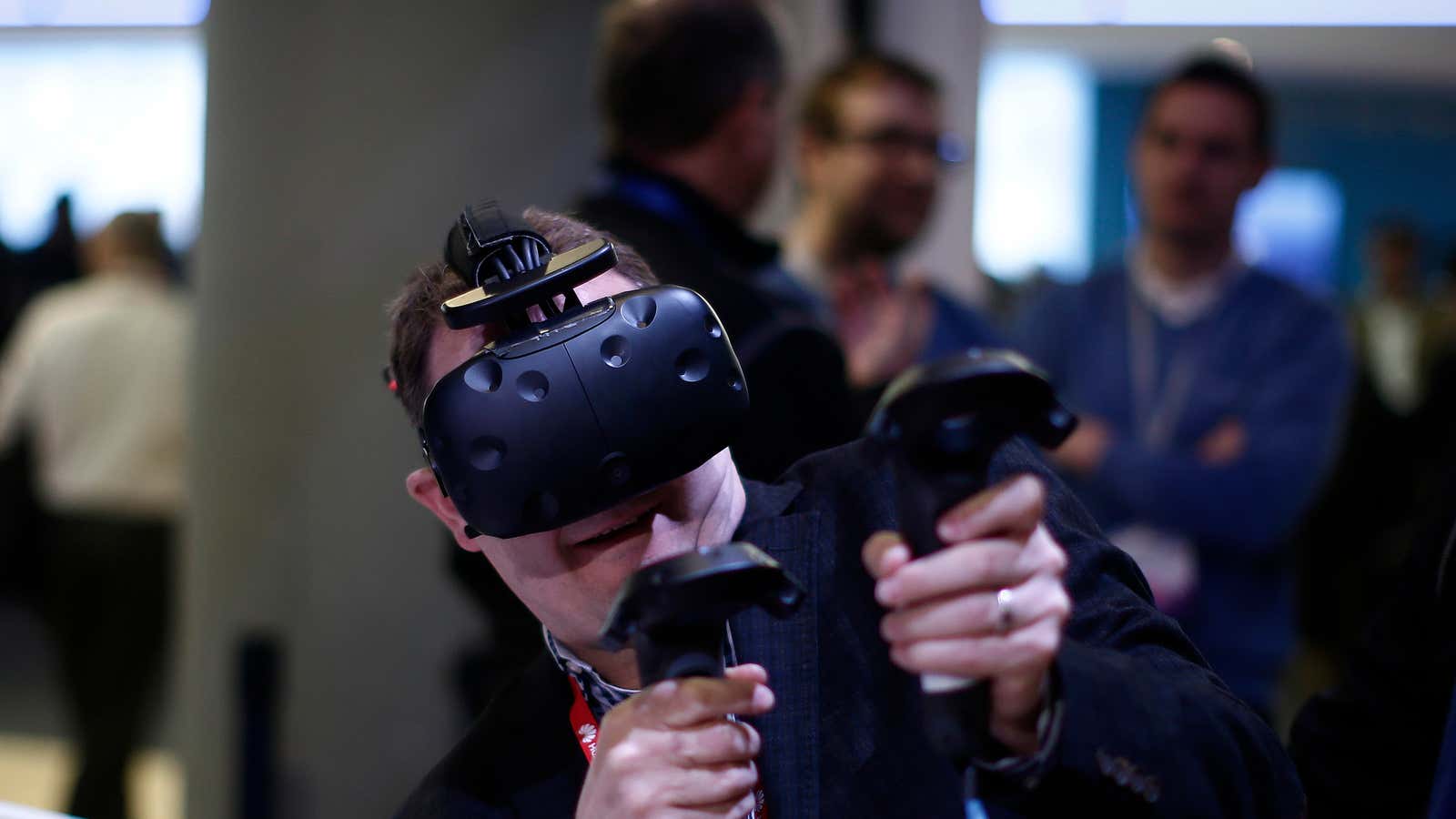Last year was supposed to be the year of virtual reality.
Facebook, HTC, and Sony each released major pieces of VR hardware, all vying to be the platform that turned the dream of home virtual reality into, well, actual reality. But outside of a few interesting games and some short films, there hasn’t really been much to keep people coming back time and again to VR systems yet. Coupled with the high costs of most of these systems (about $600-$800, not including the roughly $1,000 computer you need to run them), it’s likely that no system sold more than 1 million units in 2016. Facebook CEO Mark Zuckerberg has pushed VR as the future of computing, but the last device to truly shift that paradigm, the smartphone, sold well right away.
But Facebook, which owns Oculus, unsurprisingly remains intent on reaping the benefits of its $2 billion investment in the technology. The company’s annual developers conference, called F8, kicks off tomorrow, April 18, in San Jose, California. Facebook broke down the sessions at this year’s conference into 16 categories, and after general topics about engineering and building for Facebook’s platform, the topic with the most number of sessions was virtual reality.
In recent years, Facebook has been making massive pushes into messaging (with its purchase of Instagram and its move to force Facebook users to download Messenger to converse with friends), and artificial intelligence. However, a big focus right now is on turning virtual reality into something that consumers might actually want to use. At last year’s conference, Zuckerberg showed off a new camera rig for capturing 360-degree video for viewing on headsets like the company’s Oculus Rift, as well as a demonstration of what using Facebook could look like in virtual reality. Facebook fleshed that out a bit more fully at Oculus’ own developer conference in October:
Facebook’s social VR manager, Michael Booth (who is in the VR video above with Zuckerberg), recently posted a photo from last year’s demonstration, adding that he’s looking forward to this year’s conference.
Zuckerberg has said in the past that he believes in the future, people will wear VR headsets in public (presumably without shame), and that it may take over a decade to realize the medium’s potential. Zuckerberg seems to understand that even with impressive hardware like the Oculus Rift, nothing will matter to consumers until there’s something actually worth spending a lot of time doing in virtual reality. The average Facebook user spends nearly an hour with the social network every day, but convincing them to strap on an expensive headset (and potentially fight off motion sickness) to do the same in VR is a much bigger ask. Hopefully, for Facebook, the sessions at this year’s developer conference will help developers start to answer that question.
